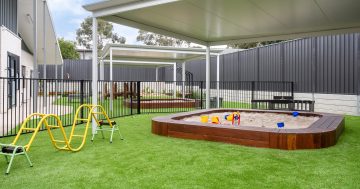
For as long as I have been a mother I have been aware of the cost of childcare and impact it has on the family budget if parents either have to or choose to work.
In Australia we are reasonably lucky to have government subsidy on childcare, which, frankly, makes it vaguely affordable for many families (still out of reach for some). For me, without the subsidy, there would be little point in working other than keeping my ‘hand’ in my career and preventing a gap and subsequent longer term disadvantage regarding promotion and benefits.
I am currently moving my two-year-old and three-year-old from one childcare centre to another. Reasonably high turnover of staff (some days not knowing the name of the individual I am placing the care of my little one in the hands of) and occasional poor organisation and planning foresight led me to the decision to move. It’s a pretty big deal. My kids (like many their age) like routine and the known, but as a parent I wasn’t entirely happy.
What has been interesting is the number of friends I have spoken to in the past month or so who are undergoing similar decisions. I can’t help but wonder why we are having such a hard time obtaining satisfaction in our childcare centres, particularly given the huge outgoing cost for these services – for my family, without subsidy, our childcare costs would be 20% higher than our rent.
Conversations with room leaders last year led me to question the effectiveness and broader impact of the Early Learning Framework. Introduced in 2012, the Framework targets the care provision of children 0-5 years old and addresses five main learning outcomes (and sub-outcomes). Instead of talking about my child/ren broadly – what they do well, where they could use some encouragement, and how their social skills are developing (essentially what I really want to know) – I was given a large folder full of papers running through different exercises/activities and how they matched against the learning outcomes. It felt like a cut and paste job in order to complete the tick box exercise. Did it provide me with a great deal of insight? No. Would it have taken the room leader considerable time and effort to prepare (time I can only assume is away from the kids)? I would imagine so.
When I think about doing this job, not spending the full time available with the children and having less time to organise activities and just enjoy them, making the children enthusiastic about learning and exploring – I have to say, I’m not surprised there are many good people moving on.
I’m starting to wonder if childcare centres would be better to leave the structured learning for the school years and be left with more freedom to play.





















